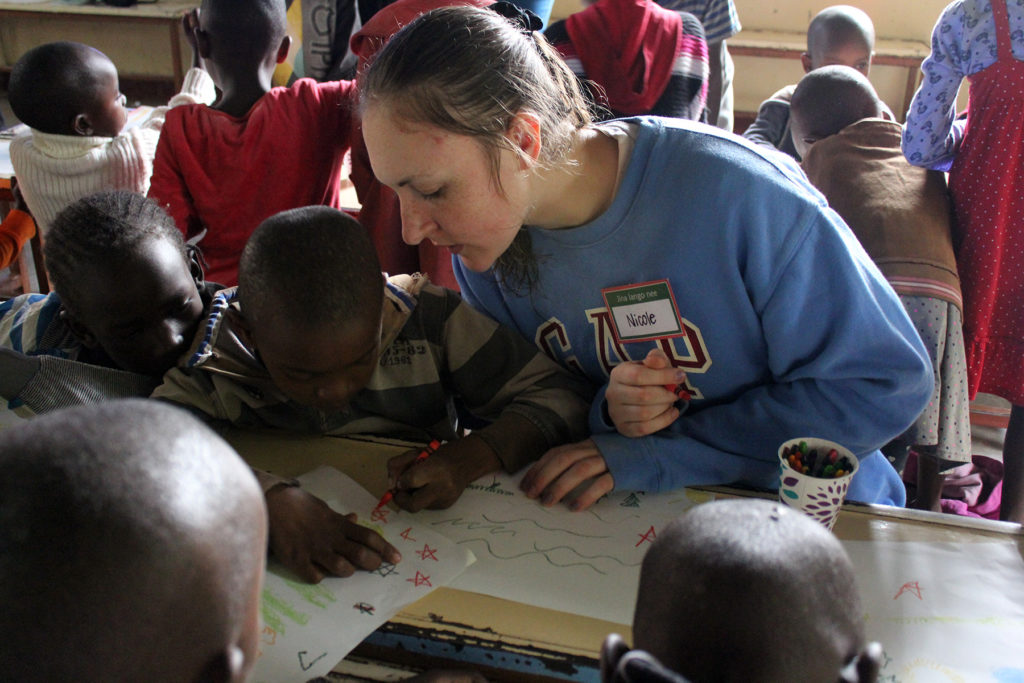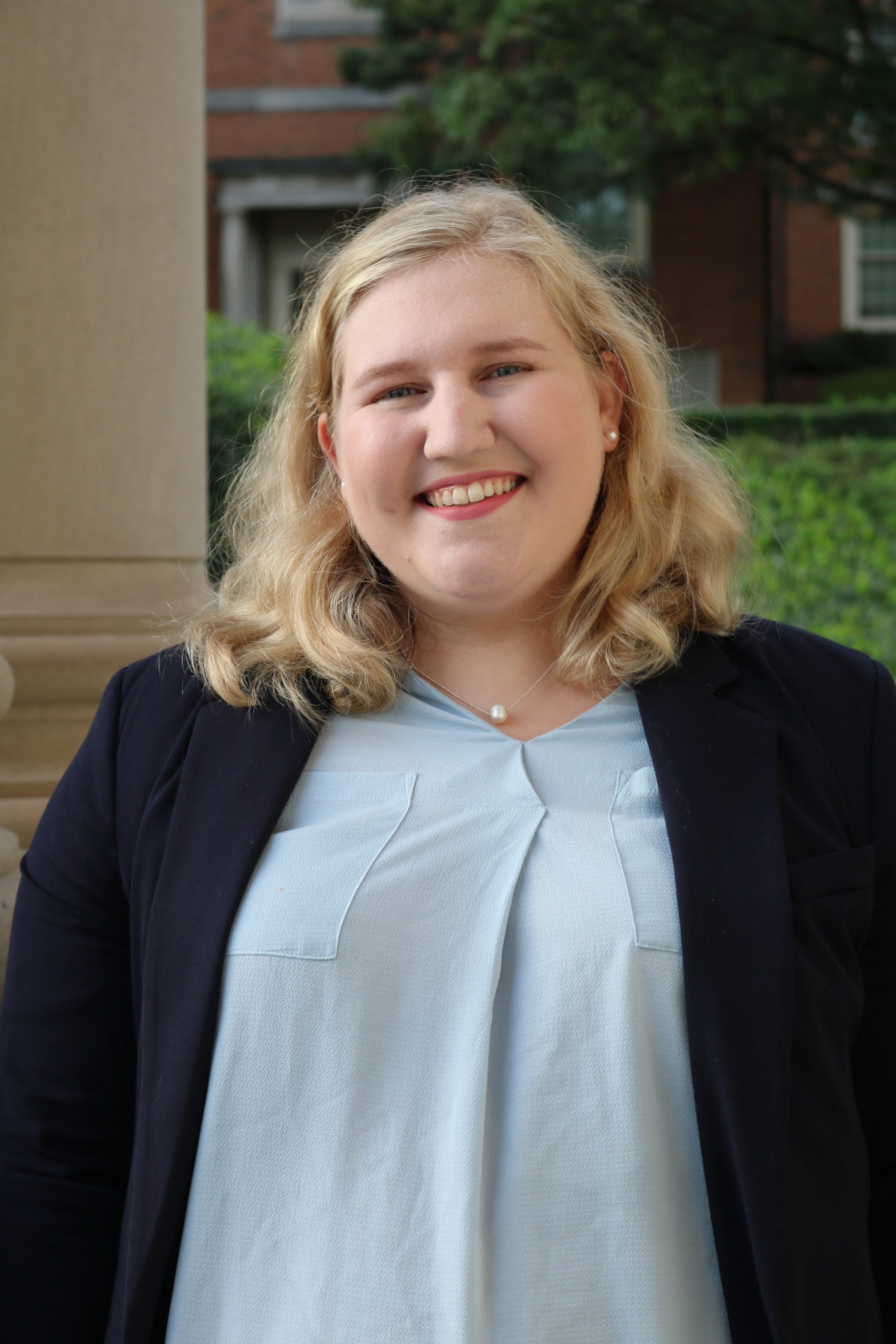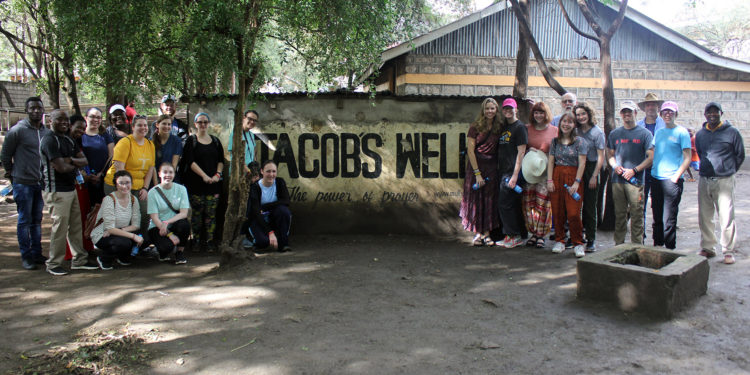During Christmas break, Samford Art students travelled to Kenya and held art camps for the children in The Mully Children’s Family, a Christian organization that rescues children who are orphaned, abandoned and neglected. According to The Mully Children’s Family website, their organization’s mission is to heal hurting souls and turn sad faces of children into happy ones. This organization also prioritizes prevention and empowering kids.
Students planned and prepared lessons and activities for the children including art crafts, music and theatre.
Before arriving at Mully Children’s Family, the group toured Kibera slums in central Nairobi.
“We got off the plane and walked through the slums with a guide,” art and design professor Larry Thompson said.“So we could, before we ever got to meet the children, we got to see where the kids came from.”
The camps were held for five days and the overall purpose of them was to give the children experiences they have never had.
“It’s just to show them love,” Thompson said.
Many of the art students, including junior fine arts major Nicole Weldy and freshman theatre for youth major Amy Ethington, believed they were being called to do mission work and go to Africa.
“It was just something I knew coming into school this year that I was being called to go to Africa,” Weldy said.
Ethington agrees and has felt called to do this since last summer.
“This summer I was feeling called to go to missions and I wasn’t really sure what I was supposed to do with that,” Ethington said.“The second week of school I get an email saying ‘Do you want to go on a mission trip where you can use your art talent?’ This was clearly God’s calling.”
Ethington also discussed how theatre is about storytelling and connecting with others and how it allowed the children to experience what it was like to tell a story.
“It was really eye-opening,” she said,“There are people in the world that don’t have clean water or don’t have enough food or don’t have parents who are looking out for their best interest. That was just really hard to see.”
“Being able to travel like I have with Samford, whether it’s missions or studying abroad, (the world) feels a lot smaller, which is almost comforting in some ways,” Weldy said.
Sophomore vocal music education major Jessie Lien said that this trip taught her about actually living.
“When you wake up to no fans or air conditioning, you have a limited number of personal possessions with you, and spend the whole day teaching children, and you sing praises every night, it’s hard to escape reality,” Lien said, “It was a joy to feel so alive.”
A lot of the memories made on the trip include going on a safari, standing at the equator and visiting Jacob’s Well, which is where the founder of MCF Dr. Ev. Charles Mutua Mulli found a source of water underground after seeing a vision from God.
For many students, some of their more memorable moments were with the children. Nicole Weldy said some of her favorite moments were when the kids learned how to make point-and-shoot cameras and take photos and when she sang Swahili with the kids.
“They really loved singing ‘God Bless America,’ because they see themselves as Americans,” Weldy said.“Being there at the Mully Foundation is like a fresh new start for them like in America.”

Students taught the children art, theatre and music. |Photo courtesy of Larry Thompson
These students not only taught these children a lot, but they also learned from the Mully children that have changed how they view the world and their lives today. Ethington said she admired the children because they made the most out of what they were given.
“They had such a self-sacrificing heart,” Ethington said
Weldy said she hoped this experience helped these children realize their artistic potential.
“I have really learned to appreciate my materials and time that is given for artmaking,” Weldy said,“I’m not a perfect artist. I’m still growing but watching these kids who don’t even realize the art talent they had made me really value my gift from God.”
Lastly, Lien loved she was impressed with their devotion toward the Christian faith.
“The faith and respect that these children exhibited were so genuine that they can only be explained as outward signs of inward belief,” Lien said.







